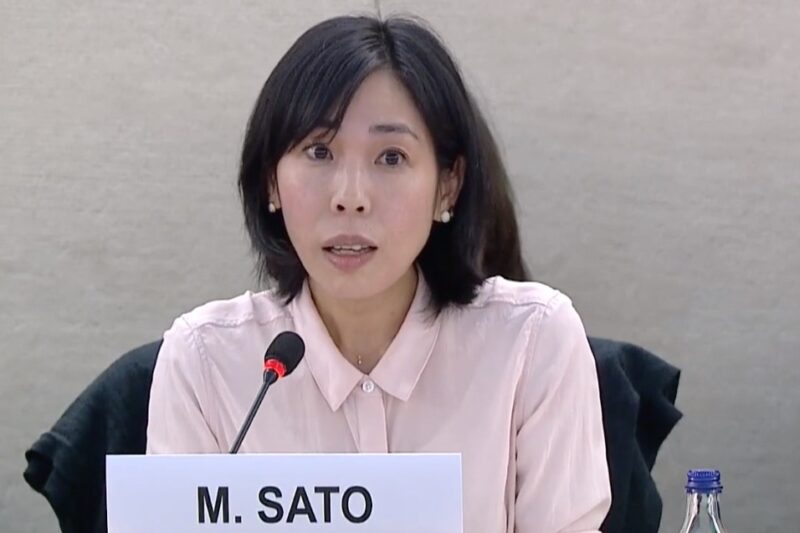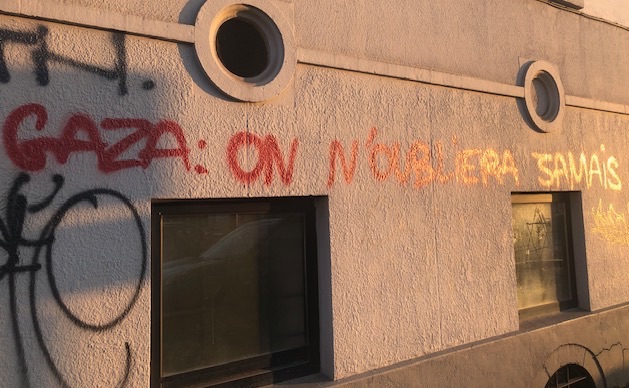Palestinian journalists targeted by the Israeli army

According to Amnesty, currently, 723 Palestinian detainees are in Israeli prisons under indefinite administrative detention orders, without charge or trial.
Palestinian and Arab detainees are held in Israeli prisons in exceptionally inhumane conditions, in which they are subjected to systematic, brutal physical and psychological torture methods. Many are left severely harmed and weakened by their experiences.
These methods include: denial of medical care; deliberate procrastination in providing treatment to sick and injured detainees, no matter the severity of the injury or illness; repression, humiliation and physical torture at the hands of the Israeli detention and interrogation teams.
Now, humanity is witnessing the most savage techniques being used by the occupiers to destroy both the will and the body: the Israeli political and judicial system has legalized all methods of physical and psychological torture against Palestinian and Arab detainees and prisoners, whether they are adults or minors, whether they are men, women or children – without any discrimination or mercy. It became a clear fact that we witness this systematic strategy is increasing significantly and frequently, this legitimization is a violation of many international treaties and charters.
Administrative detention against Palestinians
Administrative detention is a procedure used by the Israeli occupation forces to arrest Palestinian civilians without a specific charge and without trial, as arrest warrants are issued based on secret information that neither the detainee nor their lawyer has the right to see. It is a tactic used against citizens when there is insufficient evidence for arrest, according to the military orders imposed by the occupying power in the West Bank. The reasons for detention remain unknown to the detainee and their lawyer, which leads to the formation of a fragile and ineffective defense. Moreover, the administrative detention order is often renewed several times, for periods ranging from one month to six months, without specifying how many times it will be renewed.
Based on international law, this administrative detention is illegal and arbitrary.
According to Amnesty, currently, 723 Palestinian detainees – including three women – are in Israeli prisons under indefinite administrative detention orders, without charge or trial.
Most male detainees are currently held in Ofer, the Negev (Ketziot) and Megiddo, while female detainees are held in Damon Prison. This is contrary to what the Fourth Geneva Convention stipulates, which is that prisons should be located within the occupied territories.
Protest move
In rejection of Israeli brutality, 50 administrative detainees announced several weeks ago that they would hold an open hunger strike, in protest against the terrorism practiced against them. The strike ended after 19 days of abstaining from food, after they lost their strength in this attempt to draw the attention of the entire world and the international organization to the tragic reality that Palestinian people suffer each day, and in protest against this systematic arbitrary policy.
Fact and figures
Reports by human rights organizations indicate that during September, the occupation authorities issued 245 administrative detention decisions.
This brought the total number of administrative detention decisions and renewals made between the beginning of 2022 and the end of last September to 1.610.
Reports and statistics indicate that the number of administrative detainees in Israeli prisons is the highest since 2008 and has increased significantly during the current year.
Among this total, there were 723 new decisions (44.9% of all decisions), while the remaining 887 were decisions to extend the period of administrative detention (55.1%).
The number of Palestinian prisoners and detainees in the occupation prisons is 4.650, including 32 female prisoners, 180 minors, and 723 administrative detainees, among which there are three female, and four children.
The Palestinian Center for Prisoners and Detainees Studies says that the occupation aims to use the administrative detention policy to keep these Palestinians behind bars for as long as possible. As they are without trial or charge, under the pretext of having a secret file, these prisoners are political hostages to the occupation.
This policy has been applied to all Palestinians, regardless of their profession or age. Every Palestinian is a target, including human rights and community activists and even journalists being arrested.
Live examples
Israel uses administrative detention to target many Palestinian activists, including human rights defenders, journalists, and actors in civil and community institutions inside occupied Palestine, specifically the city of Jerusalem. Among the administrative prisoners who declared the recent hunger strike. Detainee Salah al-Hamouri, (a human rights lawyer and journalist who has French nationality), who is being held in Hadarim Prison, was arrested from his home in Jerusalem on 3 March 2022, and was transferred to administrative detention for three months. As the period was about to expire, the occupation authorities renewed the detention for the second time in a row.
Al-Hamouri is a lawyer and field researcher for the Addameer Foundation for Prisoners’ Rights. Several years ago, the occupiers detained and then deported his wife, who was seven months pregnant, to the French capital, Paris, as part of a harassment campaign against her husband.
Journalist and radio producer Nidal Abu Akar is detained in the Negev desert prison, and is the oldest of the administrative detainees on hunger strike. He has been subjected to administrative detention many times, the last being in August this year, nearly two and a half months after his release by the occupation authorities
Israel and international conventions
From the first moment of the Israeli occupation until now, it has enacted arbitrary laws that guarantee its sovereignty, expansion and survival in the Middle East, on the land of Palestine. It does so by legitimising the practice of these brutal laws and the continuous violation in all the occupied territories, including establishing settlements, confiscating land, demolishing homes, enforcing continuous restrictions, arresting children and adults, targeting journalists and human rights activists, and carrying out many assassinations.
Israeli still considers itself a country in a state of emergency since its establishment, justifying to itself the continuous use of emergency regulations as it deems appropriate.
Prisons, detention and investigation centers are part of this system and are at the core of its terrorist methods, as basic tools of repression, torture, control and violation. It is worth noting that the Israeli investigators are legally protected, which guarantees that they will not be brought to trial, thus ensuring the continuation of this system. It is important to mention that Israel, despite its signing of the UN Convention against Torture, refrains from enacting a clear and direct law criminalizing torture and the prosecution of journalists and human rights defenders.
Palestinian journalists targeted by Israeli forces
Israel forces killed the prominent journalist Shireen Abu Akleh on 11 May 2022 in the Palestinian city of Jenin, when they shot her while she was covering the news of an Israeli military raid.
As a result, the Palestinian Journalist Syndicate (PJS) and the International Federation of Journalists (IFJ), as well as Shireen’s family with other lawyers, submitted a complaint to the Office of the Public Prosecutor at the International Criminal Court in The Hague, demanding an investigation into those responsible for the assassination.
The PJS said that “despite the enormous pressure made by the occupation and their influence abroad”, they succeeded in submitting the full file of the complaint against the Israeli occupation to the authorities in The Hague, for the accusation of assassinating the journalist Shireen Abu Aqleh, and causing an injury to another fellow journalist, namely Ali Al-Samoudi, and targeting their colleague Shatha Hanaisheh, on 11 May 2022 in Jenin.
Submitting the file to the International Criminal Court
The submission of the complaint file regarding Abu Aqleh came after completing all the necessary legal procedures to ensure the success of the case, and to oblige the international court’s prosecutor to initiate an investigation, and to prosecute the occupation leaders and those who are directly responsible for committing this crime.
The two lawyers, Jennifer Robinson and Tatyana Eatwell, submitted the complaint, demonstrating the importance of opening an investigation through the court related to the assassination. They also demanded a follow-up to the complaint considering all the statements, official and media investigations, and testimonies submitted to the Public Prosecutor’s Office in the file of the assassination.
The PJS revealed that before referring the file to the International Criminal Court, “the occupation, the external support forces, and the Israeli lobby, had put massive pressure on international institutions and parties, in order to undermine and obstruct the submission and declaration process.”
For example, the management of the hotel in The Hague, which had agreed to host the press conference announcing the submission of a new complaint to the International Criminal Court regarding the murder of journalist Shereene Abu Akleh, later apologised for holding the planned conference on its premises.
Other hotels refused to book any hall for conducting the conference.
According to the lawyer Tatyana Eatwell – who represents Abu Akleh’s family, Ali al-Samoudi and the families of other Palestinian journalists – the consequences of impunity are significant and huge and leads to continued targeting of journalists by Israel’s army.
The PJS and the IFJ said Israel and its leaders should be prosecuted for all crimes committed against journalists.
They also emphasized that via the support of the IFJ, International Federation of Journalists , its affiliates, and friends of Palestine, they will continue to defend Palestinian rights in order to achieve justice, ensuring that perpetrators of crimes against journalists and innocent persons will always be held to account and will receive the punishment established by international laws.





